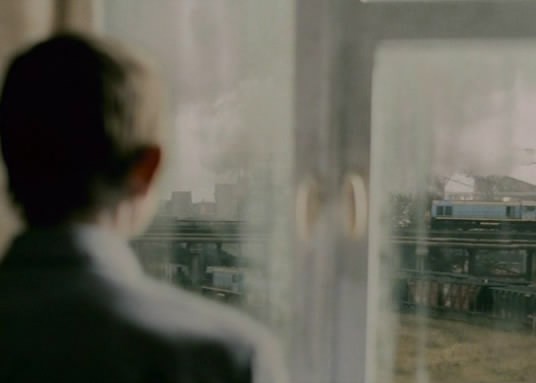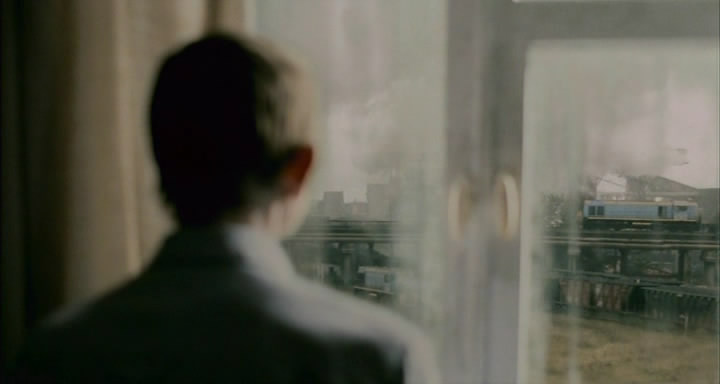Russian director Aleksey Balabanov is a fascinating and discomfiting filmmaker, responsible for one of the very few successful Kafka adaptations, The Castle, to which Balabanov boldly appended his own ending. Technically brilliant, Balabanov is generally enigmatic about what he is doing and how he does it. I took a look at his extremely unnerving Cargo 200, a loose adaptation of Faulkner’s Sanctuary, to try to figure it out.
CARGO 200: BLURRED SPACES
Something awful is going to happen to the girl. This is the Soviet Union in 1984. This is not a nice time, and these are not nice people. The veneer of civilization, this professor of atheism, this friendly colonel, these dancing teens: they are all part of a paper-thin mask. Director Aleksey Balabanov will pull it off soon enough. This is Balabanov and he is dark.
The movie is beautiful. Everything is dilapidated and falling apart, but there’s still a deep palette and the geometry of the scenes is proportionate. There is a neo-classicism here, a desire to recreate aspects of the past without subverting them. Overlaying that is the horror, as though immaculate Greek sculptures were made to violate each other and commit heinous acts. Craft is being deployed orthogonally to content.
The horror is not happening yet, though. Things are calm. The movie goes on, and people are suspicious, and still the horror does not start.
This is an American story. Balabanov took the plot from William Faulkner’s Sanctuary, though Balabanov claims it’s a true story. In that ugly novel the young girl fell in with motley bootleggers and was kidnapped and raped by a sociopath named Popeye. The plot is still here. But Cargo 200 is slower than Sanctuary. And everything feels different. It lacks the sordid atmosphere of Sanctuary. This is not the South. This is not anarchy and lawlessness. This is dread, absurdity, oppression, and war. This is not Mississippi in 1929, it is the Soviet Union in 1984.
The government is everywhere. But what is the government? Andropov is dead. The Soviet Union is at war in Afghanistan. Soldiers are coming back home in boxes. The code for these coffins is “Cargo 200.”
[continued at Quarterly Conversation]


